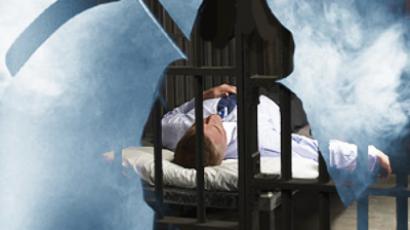“Nazi-praising groups marginalized in Europe – but for how long?”
Austria is investigating how skinheads managed to organize a sickening visit to a former Nazi death camp. Holocaust historian Efraim Zuroff says the act was a provocation.
The far-right group, dressed in black T-shirts with pro-Nazi slogans, gave a Hitler salute in front of a former gas chamber at the site of the Mauthausen camp, where more than 120,000 prisoners were gassed, worked to death or starved during the World War Two.
“Nazi-praising groups have no political power in Europe now, but the question is whether that will continue to be the case,” said Dr. Efraim Zuroff from the Simon Wiesenthal Center.
He added though that the situation today is much better than 30 years ago
“You have people who are trying to deny that those events took place. You have people, especially in Eastern Europe, who are trying to distort the memory of the Holocaust, saying that communism is the same as Nazism in order to cover up their own crimes, and the like. So these are the dangers we have to fight against,” Dr. Zuroff said. “But the situation now is much better in comparison with 30 years ago, because 50, 40 or 30 years ago there was relatively little information about the Holocaust, very few people were talking about it, writing about it, and very few movies were made.”
Each society has to take steps in order to educate people to, in a sense, immunize themselves against groups like this and the appeal they have in times of economic distress, the historian believes.














